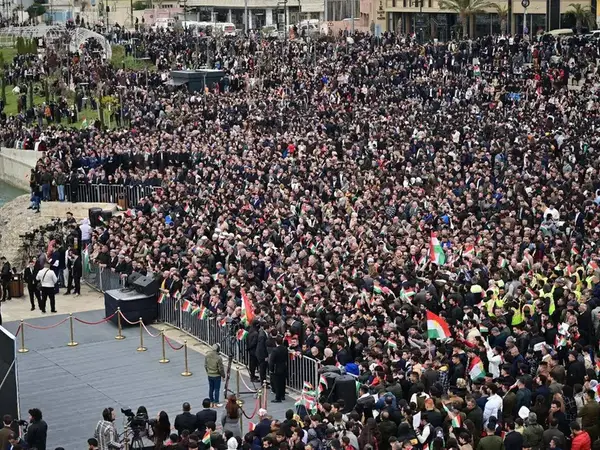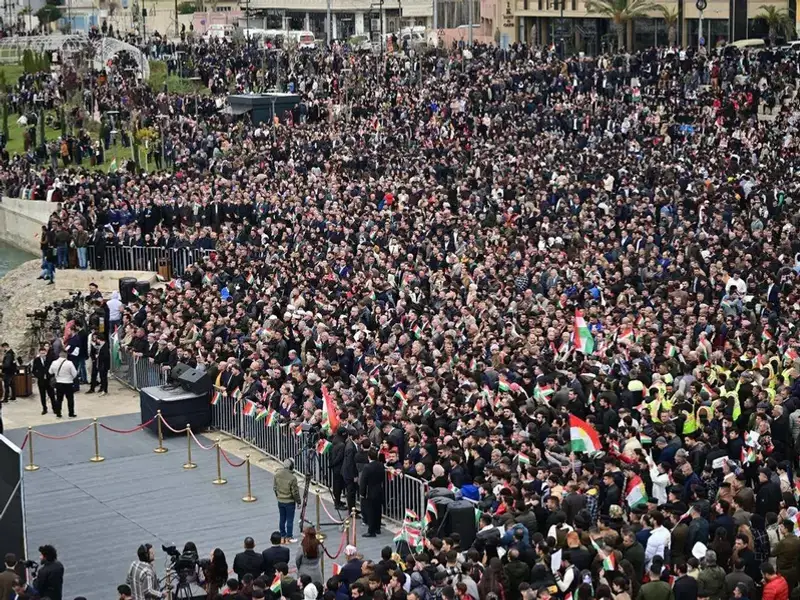Thousands took to the streets in the Kurdistan region of Iraq on Sunday to denounce the IRGC missile attack on Erbil which killed four civilians and injured six others.
The IRGC launched ballistic missiles on Erbil last Monday citing the destruction of alleged "spy headquarters" and the dispersal of "anti-Iranian groups" as its objectives, causing a diplomatic furore in its wake. Iraq summoned Tehran’s chargé d’affaires in Baghdad to condemn the move and withdrew its ambassador from Tehran.
Hassan Hassanzadeh, the commander of the IRGC in Tehran, declared that the strikes were executed under the orders of Ali Khamenei, the Supreme Leader of the Islamic Republic.
While the IRGC claimed to have targeted a Mossad headquarters in the Kurdistan region of Iraq, referring to Israel's spy agency, Masrour Barzani, the Prime Minister of the Kurdistan Region categorically denied Iran's claims. Barzani condemned the attack on Erbil as a “crime against the Kurdish people,” accusing Iran of killing innocent civilians in its missile strikes.
The Arab League condemned the IRGC's attack, characterizing it as a “blatant aggression on the sovereignty of Iraq.” The condemnation rejected all "justifications and pretexts" put forward by the Islamic Republic for the attack, emphasizing the potential threat it poses to regional peace and security.
In a press conference on Monday, Naser Kanaani, the spokesman for the Iranian Ministry of Foreign Affairs, said the attacks were due to "tangible threats to Iran's national security" suggesting an imminent threat on its border.
Iraqis have since initiated a campaign to boycott Iranian products, encouraging the substitution of Iranian goods with locally-produced or Arab alternatives.

